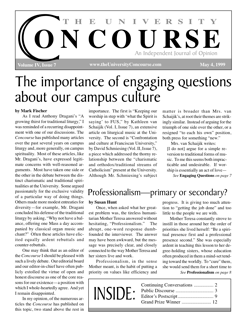A positive psychology
by Kathleen van Schaijik
Here’s a great potential Concourse topic for the psychologists among us.
A year or so ago I read a fascinating article by Trish Hall about the ideas of the new president of the American Psychological Association, Martin Seligman.
It began: “Psychologists rarely think much about what makes people happy. They focus instead on what makes them sad, on what makes them anxious. That is why psychology journals have published 45,000 articles in the last 30 years on depression, but only 400 on joy. Joy is not covered by insurance, nor does it lead to tenure.” (International Herald Tribune, May 4, 1998.)
Seligman, a professor at the University of Pennsylvania, is determined to change that. “I believe America is fed up with the victim model and wants to make life better,” he said. “I don’t want to cast out the disease model. But we need a science that tells us about human strengths. I want to remind psychologists of normal people.”
According to Seligman, psychology has been essentially negative for 100 years. “Social science has believed negative things were authentic and human strengths were coping mechanisms… [P]sychology needs to ask, What are the virtues? We need to delineate them, assess them, ask casual questions. What are the interactions? How does it grow? Let’s talk about growth and questions of strength…”
To that end, Dr. Seligman has been giving speeches (which get standing ovations) to clinical psychologists, writing grant requests, and working to establish a research network of colleagues interested in getting a positive psychology off the ground.
Sounds to me like something FUS should definitely try to get in on!


